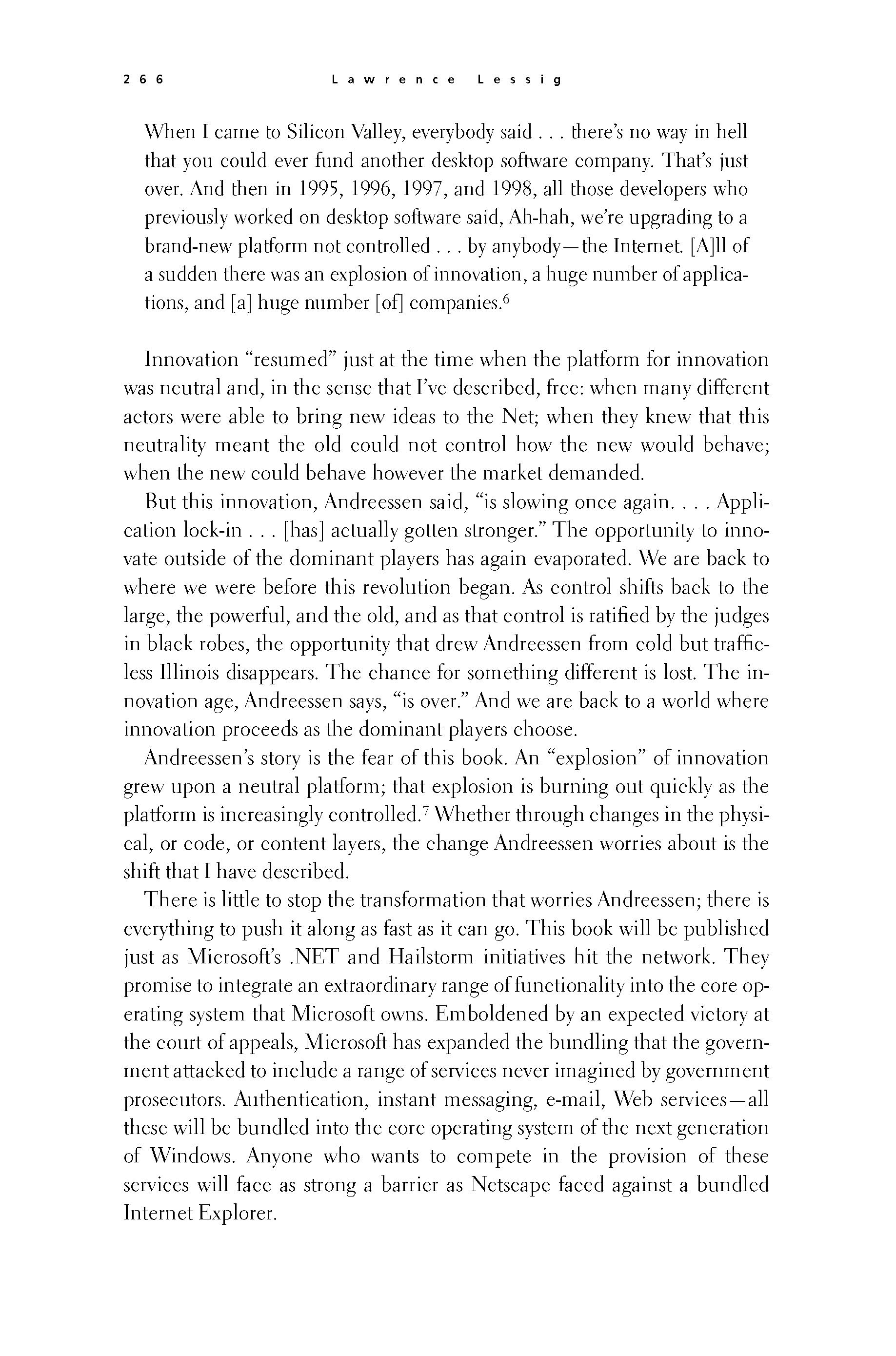 p265 _
-chap- _
toc-1 _
p266w _
toc-2 _
+chap+ _
p267
p265 _
-chap- _
toc-1 _
p266w _
toc-2 _
+chap+ _
p267
____ When I came to Silicon Valley, everybody said... there's no way in hell
____ that you could ever fund another desktop software company. That's just
____ over. And then in 1995, 1996, 1997, and 1998, all those developers who
____ previously worked on desktop software said, Ah-hah, we're upgrading to a
____ brand-new platform not controlled... by anybody -- the Internet. [A]ll of
____ a sudden there was an explosion of innovation, a huge number of applica-
____ tions, and [a] huge number [of] companies.[15-6]
Innovation "resumed" just at the time when the platform for innovation
was neutral and, in the sense that I've described, free: when many different
actors were able to bring new ideas to the Net; when they knew that this
neutrality meant the old could not control how the new would behave;
when the new could behave however the market demanded.
But this innovation, Andreessen said, "is slowing once again... Appli-
cation lock-in... [has] actually gotten stronger." The opportunity to inno-
vate outside of the dominant players has again evaporated. We are back to
where we were before this revolution began. As control shifts back to the
large, the powerful, and the old, and as that control is ratified by the judges
in black robes, the opportunity that drew Andreessen from cold but traffic-
less Illinois disappears. The chance for something different is lost. The in-
novation age, Andreessen says, "is over." And we are back to a world where
innovation proceeds as the dominant players choose.
Andreessen's story is the fear of this book. An "explosion" of innovation
grew upon a neutral platform; that explosion is burning out quickly as the
platform is increasingly controlled.[15-7] Whether through changes in the physi-
cal, or code, or content layers, the change Andreessen worries about is the
shift that I have described.
There is little to stop the transformation that worries Andreessen; there is
everything to push it along as fast as it can go. This book will be published
just as Microsoft's .NET and Hailstorm initiatives hit the network. They
promise to integrate an extraordinary range of functionality into the core op-
erating system that Microsoft owns. Emboldened by an expected victory at
the court of appeals, Microsoft has expanded the bundling that the govern-
ment attacked to include a range of services never imagined by government
prosecutors. Authentication, instant messaging, e-mail, Web services -- all
these will be bundled into the core operating system of the next generation
of Windows. Anyone who wants to compete in the provision of these
services will face as strong a barrier as Netscape faced against a bundled
Internet Explorer.
[[266]]
p265 _
-chap- _
toc-1 _
p266w _
toc-2 _
+chap+ _
p267